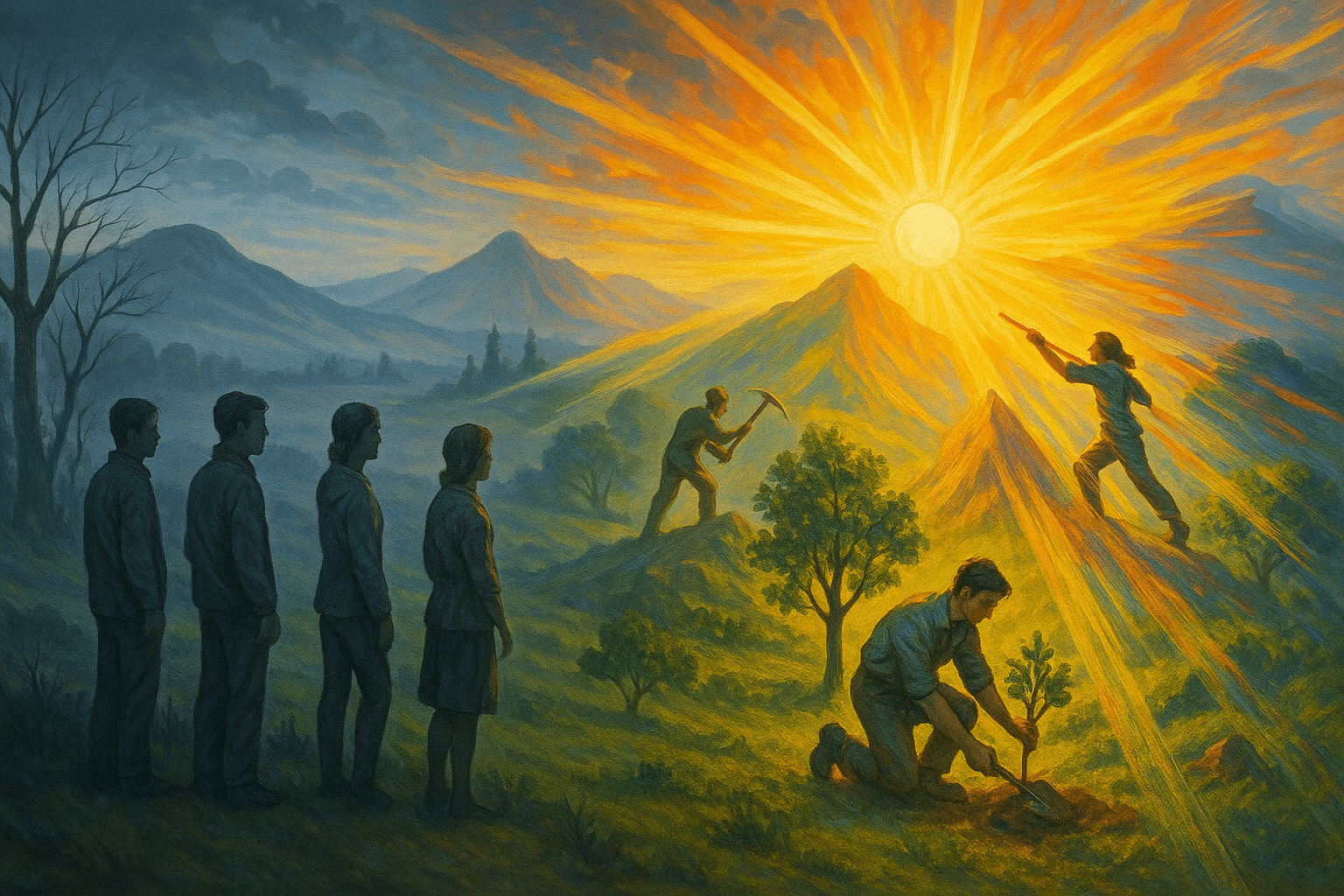From Reaction to Creation: The Path of Extraordinary Individuals

Ordinary people merely react to the world. Extraordinary people create it. — Angela Duckworth
—What lingers after this line?
One-minute reflection
Where does this idea show up in your life right now?
Understanding the Dichotomy: Reactors Versus Creators
Angela Duckworth’s statement draws a distinct line between those who respond passively to external events and those who actively shape their reality. Ordinary people, according to this view, let circumstances dictate their actions, adapting but rarely driving change. By contrast, extraordinary individuals harness vision and initiative to mold the world around them, refusing to be confined by the status quo.
Historical Examples of World-Makers
This creative impulse has been exemplified throughout history by trailblazers who refused to settle for existing conditions. For example, Thomas Edison’s relentless experimentation led to the electric light bulb—lighting up not just rooms, but possibilities for industry and daily life. Similarly, Marie Curie’s pioneering research in radioactivity reshaped science, demonstrating the transformative power of those who step beyond reactive living.
Psychological Foundations of Creation
Transitioning into psychological perspectives, Duckworth’s own research emphasizes grit and perseverance as hallmarks of extraordinary individuals. Creators cultivate resilience in the face of setbacks, persisting where others might only adapt. Carol Dweck’s growth mindset theory further supports this, highlighting how a belief in one’s capacity to learn and innovate sets creators apart from mere reactors.
From Reaction to Action: The Role of Agency
Furthermore, the journey from reacting to creating involves embracing agency—the belief that one can effect change. ordinary people may feel at the mercy of circumstance, but extraordinary people, like Nelson Mandela or Malala Yousafzai, demonstrate self-determination. They not only envision a better world but also take concrete actions to realize it, inspiring others in the process.
Cultivating Creativity in a Reactive World
In conclusion, while most respond to their environments, it is possible for anyone to nurture creative power through intentional practice. Education systems, as Sir Ken Robinson argued, should foster this shift by empowering students to think critically and act innovatively. Through purpose, resilience, and a proactive mindset, individuals can transcend reaction and participate in the ongoing creation of the world.